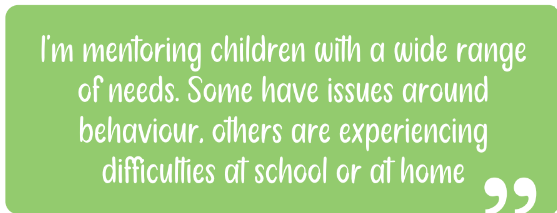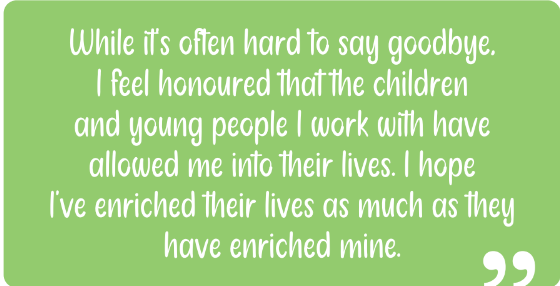Sarah, one of our youth workers, tells us why mentoring is so important
Chance UK is unique as we go to where our children are, doing activities in their local community and working with them one-to-one. Over the ten years I’ve been working with young people, I have never had this kind of opportunity. It gives me the chance to better understand their world, as well as their specific needs.
The children I work with have so much to offer to their communities, and to the world, but the challenges they experience can limit their ability to thrive.

Many of the children, particularly girls, also have fairly low self-esteem and confidence, and face challenges with their mental health. For example, one girl wouldn’t leave the house unless we were meeting for a session.
Our weekly sessions may take place at a child’s home, or at a café or library. At first, we spend time getting to know each other. We will play cards, draw, bake – it really depends on what they like doing. Simple activities like building Lego or even going for a walk shouldn’t be underestimated as it’s a good
way to start a conversation and begin building our relationship. We go at their pace – some children are willing to be quite open from the beginning, whereas others need more time.
Many of the children we see have been through a lot, and it’s a big moment when they feel safe to open up and share sensitive details about their lives. For example, one child I worked with had quite complex needs and had been in care. I was initially unsure about whether she would respond to me as a mentor. But during one of our sessions, she started teasing me, as a younger sister would, and honestly, I felt relief – we got there! Our relationship went from strength to strength.
Once that relationship is established, we will start doing more targeted work around the challenges they are experiencing. For example, one child I work with loves acting and so we role play different scenarios to build their confidence in facing difficult situations at school. For another child, we might draw a comic strip to help them work through a situation instead. It is important that children feel like they have a voice in this process which is why we encourage them to identify their own goals. I’ve learnt to never underestimate children.
One day, a nine year old boy told me that he can sometimes be so focused on himself that he forgets about the other people around him. In his words, “it’s not always about me”. Some adults would struggle with being this self-aware.
Towards the end of mentoring, we look back and to the future. This reflection helps a child consider how they’ve grown and what they’ve learned. Many of them feel more capable and empowered – parents and caregivers often tell me about the positive changes at home and at school. The graduation ceremony is a lovely celebration of their achievements and acts as an important end to our time together.

